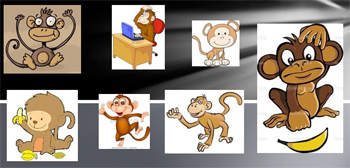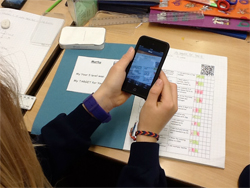For the 2016/17 academic year I was determined that I would use a more flipped learning and independent learning style with my A Level students, and start introducing it with my GCSE classes as well. I wanted to do this as I felt that by spoon-feeding the students the information I was doing them a disservice and, rather than educating them, I was just schooling them for the exam. I also selfishly, wanted to try and create a better work/home balance and be more organised in my planning.
Independent learning has many different names - child centred, personalised or self-regulated - but at its core it is the process of shifting responsibility for the learning process from the teacher to the pupil. To achieve this outcome successfully, pupils need to have a deep understanding of their learning, be self-motivated and willing to collaborate with the teacher within the learning environment according to a 2010 white paper presented at the British Educational Research Association (BERA) Annual Conference.
Like many, I was pushed to work hard from a young age to make sure I passed those exams. Looking back, I realise that instead of being praised for the effort I put in, my success was entirely measured by the grades I achieved. My experience of rewarding achievement is typical, both as a student and as an educator. This stems from a system where many schools are driven by results-orientated approaches to measuring success. In turn, this is instilled in parents further perpetuating the problem of setting limits on achievement.
The traditional Scheme of Work grid is perhaps well past its sell-by-date for 21st Century learning. Consider instead a Learning Plan to promote independent learning and to underpin the introduction of Flipped or Blended learning as wished. The Learning Plan also dovetails well with the Big Picture Lesson plan by setting key questions which can easily be carried forward into the classroom.

The 7 Monkeys is a way of enabling students to learn a concept, process or idea independently with minimal teacher input. Each ‘monkey’ is a different activity that the students undertake to support their learning. The end point is students answering a question with a piece of extended writing.
Why monkeys? Nobody knew – the students seemed to like it though!
This is how the process works.

Since I began teaching over seven ago, I have always taught the Topic of World War 2. It's a subject I thoroughly enjoy teaching and always an area that the pupils show a real interest. The topic has developed from a stand alone 'History' topic loosely based on a scheme of work, to a topic which encompasses all areas of the curriculum - a creative curriculum.
With the introduction of 1:1 iPods in year 6 in September, myself and my colleague Mr Williams began to plan a scheme of work for the World War 2 topic, looking in particular at how using technology could enhance an already engaging topic. Initially the aim was to build up the pupils' ICT skills and confidence using the iPods, and in particular the creative apps such as iMovie, Sonic Pics, Pages, Strip Designer, Creative Book Builder, Keynote, etc (examples of pupils work using these apps can be found below). If we felt that using the iPods would enhance the learning process then we planned to use them. Ultimately, we wanted to develop the pupils' skills on a variety of apps, so as the topic progressed the pupils would become as independent as possible. We could then make informed decisions on which apps to use to aid them, and demonstrate their learning for a particular area of study.

Since the beginning of September, we have been trying to maximise the use of 1:1 iPods in year 6 in all areas of the curriculum. The potential of enhancing teaching and learning in mathematics through the use of this technology has been particularly interesting. We have been developing the creative use of a range of apps to support progress, engage childrena and add relevance to maths teaching with positive outcomes. We have also explored a wide range of maths specific apps which have helped pupils mainly in the areas of number fact and tables recall. Recently, we have extended the use of the iPods to allow them to support independent learning, and play a central role in effective formative assessment.
Each week the children complete regular short assessment tasks based on assessment criteria appropriate to the level of maths they are working towards. We have adapted the assessment resources provided by Andrell Education as part of the Big Maths approach developed by Ben Harding. For those unfamiliar with Big Maths, the assessment feature uses a 10-step checklist to identify the specific steps a pupil needs to secure before achieving a level and moving on to the next. As teachers, we have found this element of Big Maths extremely powerful and it is central to our developments with the iPods in terms of formative assessment and independent learning.

A community-driven platform for showcasing the latest innovations and voices in schools
Pioneer House
North Road
Ellesmere Port
CH65 1AD
United Kingdom